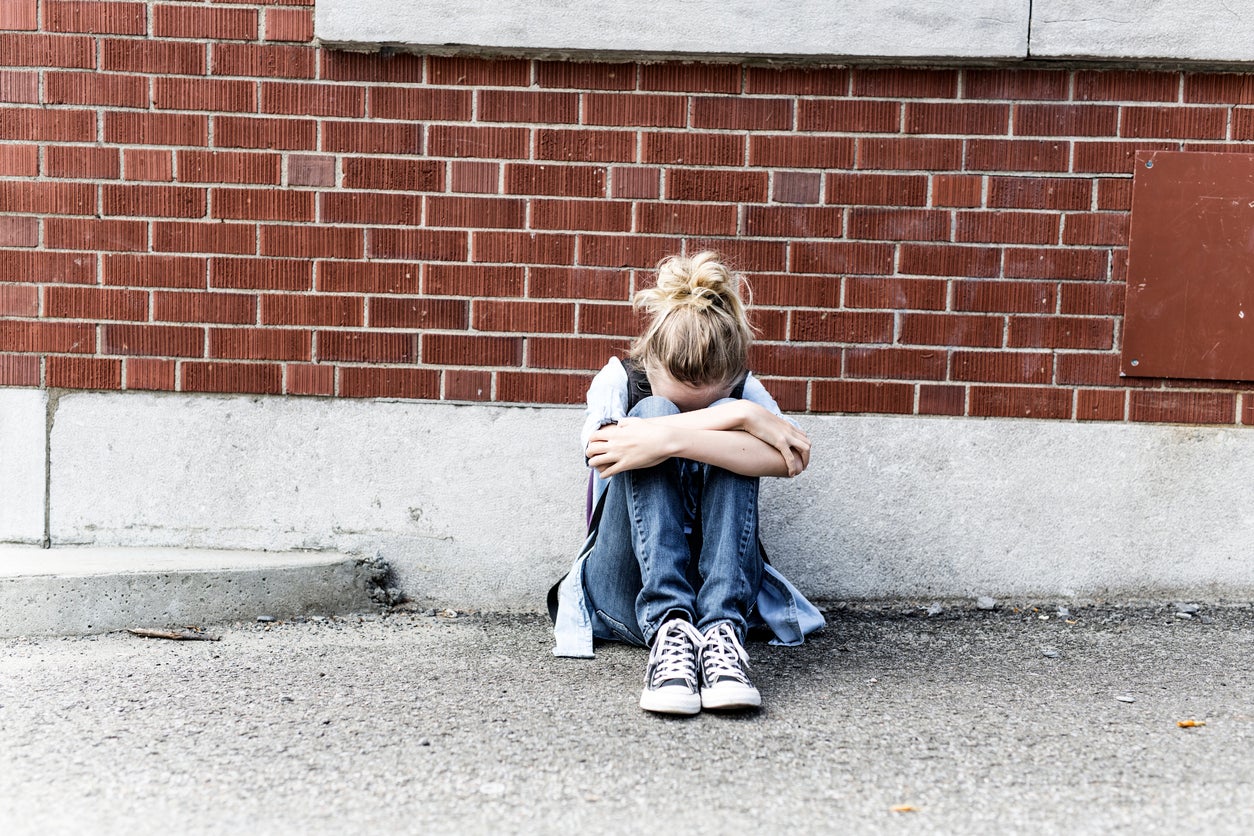I’m a headteacher – I know violence against women starts in the playground
Putting undercover police in clubs, and making misogyny a hate crime, will not change how men treat women – sexual harassment awareness should be part of the school syllabus


After 15 years as a teacher and headteacher around the UK and abroad, and now training thousands of teachers around the world, I know the problem of how men treat women can manifest early, in the playground, where behaviours learnt from online role models are acted out.
The playground is where it must end, and where it can end if we make gender relations and sexual harassment awareness part of the syllabus for primary school children – something that crime and policing minister Kit Malthouse called for this week.
The other solutions are just sticking plasters, treating the symptoms not the disease. Once behaviour is ingrained and normalised it won’t be eliminated through undercover police in clubs, treating misogyny as a hate crime, or handing out tougher criminal sentences. You never have a chance to influence someone as easily and quickly as you do at primary school age.
Bad adult behaviour is much easier to prevent than fix. That is where we must start. Some may feel that by doing this, we will harm boys’ self-image and harm, rather than heal, relationships between men and women. Already, the #notallmen hashtag has circulated on social media in response to the debate.
The hashtag is obviously accurate, most men are not likely to commit an act of sexual aggression or harassment. However, “most men” isn’t good enough. Even though most children are not likely to grow up to be bank robbers, we teach them all that stealing is wrong. Most car journeys are safe, but we still wear a seatbelt. The same level of caution should be applied to sexual harassment – It only takes one assault to ruin a life.
It’s naive to think the criminal justice system, which is already under great strain during the pandemic, will solve our problems. Tougher penalties are only part of the solution; we need to eliminate the need for these tougher penalties in the first place.
Read more:
I know that children have an innate and robust sense of fairness – barely a day goes by in a school without a pupil saying “that’s not fair”. That demand for fair play can be at the heart of how we educate our way out of sexual harassment.
I’ve also overheard lots of slurs, insults and sexually aggressive statements in the playground. I’ve often seen grabbing or forced hugs. “Upskirting” is also a problem in schools with everyone having a camera phone to hand. Often the girls will be too afraid to say anything. This behaviour starts from a very young age, usually mid-way through primary school, but sometimes very young children can adopt behaviours they have seen in older siblings or parents. It continues and develops into high school.
No child is born a sexual predator. These behaviours are developed and normalised throughout life. And they can be ‘abnormalised’ too. The most important thing is to contextualise it so we understand why this unacceptable behaviour is happening. Children do not exist in a vacuum separate from society and media representations.
We also need to, and it feels terrible to have to write these words, teach boys to humanise women and girls and realise that that could be your sister or mum. We then show them the effect and the harm this behaviour has on girls.
It’s also important to include everyone in this, it is about teaching boys what is and isn’t acceptable behaviour, but also about teaching girls what boundaries they are entitled to, and to recognise and report when they have been violated.
Neuroplasticity, the ability the brain has to rewire itself, is strongest at a young age. That’s why starting this conversation in adulthood is too late. By that point, often the brain is hardwired, and our culture and media will have already sent too many messages in the wrong direction.
Research has shown that the more we talk about sex and agency in the late childhood and early teen years, the less likely those abusive behaviours are to arise. Children soak up their early education, and that informs the rest of their lives.
As well as education, there is of course a role for politics and the law, as well as broader culture. A worryingly high number of adult males believe that wolf-whistling and cat-calling can be justified. In a 2018 UK poll of 3,988 people, only 61 per cent of male respondents thought it was “always” or “sometimes” wrong to offer an unsolicited comment about a stranger’s appearance on the street.
Legally, children (and adults) need to know that unsolicited touching is sexual assault – we should consider following the example of countries like Sweden, which has made definitions clearer and removed the ‘grey areas’ that harassers often rely on.
We also need to create more space in our curriculums and school schedules for these important classes. Currently, relationships education is limited and sometimes irregular, but countless studies have shown that repetition is the mother of learning.
Patriarchal norms are drilled into our children every day online and in the media. We should be countering them in our schools.
None of this is possible if we remain focused on exams and league tables, or if we continue with our Victorian fixation on the three R’s of reading, writing and arithmetic, while sidelining the most important ‘R’s’ of all – relationships and respect.
Leon Hady is a former headteacher, and founder of Guide Education, which has trained thousands of teachers

Join our commenting forum
Join thought-provoking conversations, follow other Independent readers and see their replies
Comments